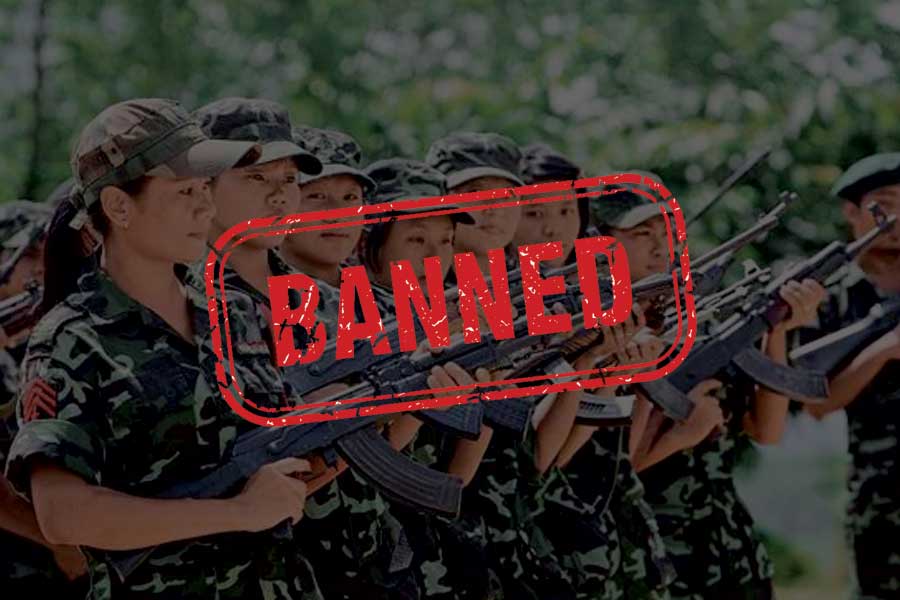The government on Monday extended a ban by five years on nine Meitei extremist groups and associate organisations, which mostly operate in Manipur, for their anti-national activities and launching fatal attacks on security forces.
According to a notification issued by the Ministry of Home Affairs, the Meitei extremist organisations have declared, as their professed aim, the establishment of an independent nation by the secession of Manipur from India through armed struggle and to incite indigenous people of Manipur for such secession.
The groups that have been banned by the ministry for five years are: the People's Liberation Army generally known as PLA, and its political wing Revolutionary Peoples' Front (RPF), the United National Liberation Front (UNLF) and its armed wing Manipur Peoples' Army (MPA).
The Peoples' Revolutionary Party of Kangleipak (PREPAK), the Kangleipak Communist Party (KCP), the Kanglei Yaol Kanba Lup (KYKL), the Coordination Committee (CorCom) and the Alliance for Socialist Unity Kangleipak (ASUK) have also been banned.
All these Meitei extremist groups were last banned by the MHA in November 2018 under the Unlawful Activities (Prevention) Act, 1967.
The MHA said it was of the opinion that the Meitei extremist organisations have been engaging in activities prejudicial to the sovereignty and integrity of India, employing and engaging in armed means to achieve their secessionist objective, attacking and killing the security forces, the police and civilians in Manipur, indulging in acts of intimidation, extortion and looting of the civilian population for collection of funds for their organisations.
They are making contacts with sources abroad to influence public opinion and for securing their assistance by way of arms and training for the purpose of achieving their secessionist objective and maintaining camps in neighbouring countries for sanctuaries, training and clandestine procurement of arms and ammunition, it said.
The MHA said if there is no immediate curb and control of the Meitei extremist organisations they will take the opportunity to mobilise their cadres for escalating their secessionist, subversive, terrorist and violent activities.
The groups will propagate anti-national activities in collusion with forces inimical to the sovereignty and integrity of India, indulge in killings of civilians and targeting of the police and security force personnel, procure and induct illegal arms and ammunition from across the international border and extort and collect huge funds from public for their unlawful activities, the ministry said.
The activities of the Meitei extremist organisations are considered detrimental to the sovereignty and integrity of India and they are unlawful associations, it said.
"The central government, having regard to the circumstances, is further of the opinion that it is necessary to declare the Meitei extremist organisations...as 'unlawful associations'.....for five years," it said.
Manipur has seen bouts of violence since ethnic clashes first erupted in May this year. More than 180 people have been killed since then. The clashes have occurred over a number of grievances that ethnic Meitei and Kuki communities have against each other.
A major flashpoint has been a move to give the Meiteis the Scheduled Tribe status, which has since been rolled back.
Meiteis account for about 53 per cent of Manipur's population and live mostly in the Imphal Valley, while tribals, which include Nagas and Kukis, constitute 40 per cent and reside mainly in the hill districts.











